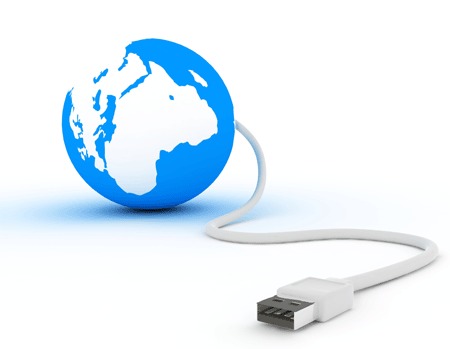 Let's take the point of view of the user who searches and what Google, for example, thinks is the most accurate response, to the one that is at the top.
Let's take the point of view of the user who searches and what Google, for example, thinks is the most accurate response, to the one that is at the top.Google considers first the term. So if the user is searching "non-profit organization", Google will only get as results pages that has that term.
Also the position of this term in the page is important. If you have the term in the title, then it is almost sure the page is about the term. On the contrary, if the term is at the bottom of the page, is less provable and Google will give more relevancy to titles.
Technically speaking, the title is the most important when you are writting an article. Choose it good and you will improve your site indexing. Furthermore, the keyword density is important. So if the term appears only one, is less relevant that if it appears ten times in the page.
Do not try to trick Google, as a page can have 3 or 4 terms, but not 3000 so a page with multiple terms is not good, as none of the terms is most relevant and Google does not know how to index such a page.
Moreover, credibility is important. Who is more credible: Unicef or a page I have created two minutes ago? Unicef of course, well, Google uses a similar technique. It is called the Page Rank (PR). It provides an index to each page (not website). The PR of the page depends on the number of pages pointing to it.
Some details: for example the page www.unicef.org has many links, so Google clearly sees this page is relevant. People around the world has decided that this page is relevant to their topics. The PR works like a democratic system: each link is a vote.
But, the comparison ends here: each vote is not equal. If I link my personnal page to the Unicef page, I am providing support to the Unicef. But if the Unicef has a link pointing to my website is more relevant beacause it is already a trustable website. It is important to tell Google that your site is a reference for trusted websites.
Some tips and actions you can do.
1) Forget about your homepage, it will be impossible to have all the terms you want in it. You have to create a page for each term and be sure that is really a specific to this term and put the term in the right position Those page are called Landing pages.
2) Use "terms" in your pages and news. Be specific but use at least three or four paragraphs to have space to repeat the "terms" at least three times. Use the terms as page title or article title. Use several declinations of the same term in the same page to be sure Google will index you in all potential options.
3) Do not try to trick Google, this is worst at the end of the day, as they have advanced algorithms that will identify that you are playing with them.
4) Get back links, as much people points to your site, much more visible you will be in Google. The first step will be to ask your network friends to put a link into their website pointing to your site.
5) Get term-back links, ask your network friends to use some of the terms of your list and make them point to your landing pages.
6) Get more back links, you can use social networks (Twitter, Facebook, Linkedin) and web 2.0 sites like Delicious, Digg to promote your content and by doing that you are creating backlinks. As those sites are pointing to your site.
7) Be sure to declare your sitemap.xml to Google and to add your RSS feeds to Internet RSS feed aggregators.
But what takes time is time: a site created 10 years ago has more visibility than a site created yesterday.
Explanations by Jordi Duran i Batidor











